
August 31, 2017
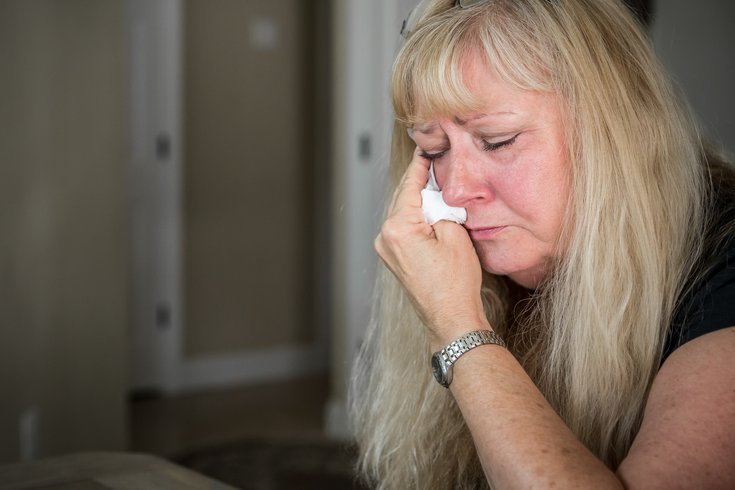 Thom Carroll/PhillyVoice
Thom Carroll/PhillyVoice
Rose Young struggles to fight back tears as she recounts her son Stephen's battle with cancer and drug addiction, and the effect it has had on her family. The former mayor of Maple Shade, N.J. has lost one son to a drug overdose and seen another son go to prison for crimes to feed an addiction. “I want people to know they need to go and get help,” she says.
Brushing back tears again and again over hours of conversation, Rose Young paused, then summed up the past two decades: “My life has been unblessed and pure bad luck.”
The 62-year-old mother and former mayor of suburban Maple Shade has seen it all – and sacrificed much.
She lost her oldest son to drug addiction.
Her younger son, Stephen Romeo, 33, is a poster child for the opioid crisis, addicted to drugs for half his life and serving time in prison until March for a pair of burglaries committed several years ago to feed that addiction. He’s doing maximum time on the convictions after screwing up while on a strict court-release program.
The mother of Romeo's six-year-old son died of a cocaine overdose while the boy was just a toddler. Young has been the boy's custodian for nearly four years.
Another of Romeo's girlfriends died of an overdose. His current girlfriend, someone he’s known since high school and refers to as his fiancé, is also an addict. She recently told Young in a text that she had bailed on rehab.
Young has spent at least $30,000 in retirement savings over the years on drug intervention programs in unsuccessful efforts to get Romeo clean. That in addition to another $30,000 or so of his own money from a legal settlement in an auto accident case.
To support his habit, Romeo stole cash and jewelry from family members, his mother said.
In addition to burying one son, caring for her grandson and fretting over another son in prison, Young cares for a 90-year-old father with dementia.
During PhillyVoice's interview with Young, her father asked her why she was spending time talking to a journalist.
“I want people to know they need to go and get help,” she answered. He nodded.
Dealing daily with the demands of her family "is like a full-time tug of war,” Young said.
Rose Young is sharing her family's experience as families of addicts around the world share similar stories on International Overdose Awareness Day.
When Romeo was living with her during his time on a parole program, she said she spent “every waking moment trying to keep him safe,” but even that wasn’t enough to keep him out of prison.
She is assisted and supported by her second husband, Karl, a painting contractor plagued with bad knees.
Her first husband left the family when Stephen was just about two. He returned to his native Italy when his son was nearly five, leaving Young, a small businesswoman with a hoagie shop, to raise her young boys.
Desperate at times, she has in the past begged for help from two reality TV shows. She made a videotape and sent it to the “Dr. Phil Show.” It showed her son’s old bedroom – blood spatter on the ceiling and blinds – where he had repeatedly shot up heroin.
Rose Young is sharing her family's experience as families of addicts around the world share similar stories Thursday on International Overdose Awareness Day.
Rose Young speaks with her father, who is 90, in the living room of her Maple Shade, N.J. home. He suffers from dementia and has been lived with her for 15 years. Young also is the custodian of her six-year-old grandson.
“We were both addicts, running wild,” Stephen Romeo wrote recently from prison of the life he led with a girlfriend. He spelled out his life story in a 20-page handwritten letter to PhillyVoice.
He first smoked marijuana around the age of 12.
About four years later, at 16, he overdosed on a mix of drugs – a combination of speed and crack.
His first drug counseling commenced as a teen. Off-and-on, he's had about 20 years of drug counseling to date.
His mother was Maple Shade’s mayor at the time of Stephen’s first overdose. She used the experience as the basis for a drug education public service announcement that aired on local access television. In the commercial, the boy died.
Stephen Romeo, 33, turned to heroin after becoming addicted to opioids prescribed for pain from several car accidents and Hodgkin's lymphoma cancer, diagnosed as a teen.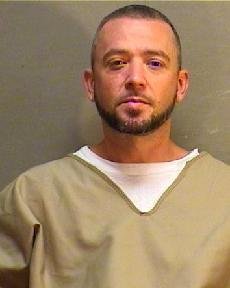
The worst of his addiction was ahead.
At 17, while receiving treatment for severe back pain from several car accidents, he was given a medical scan. It revealed a tumor in his chest. He was diagnosed with Hodgkin's lymphoma.
Doctors prescribed opioids and morphine to help him cope with the pain. Like so many who become addicted to opioids, he started using heroin, a cheaper way to stay high. (One of Romeo’s past doctors had her license temporarily lifted by the state last year due to her indiscriminate opioid prescribing practices.)
Recently, Young and Romeo learned that Romeo's son was touched inappropriately by a young relative with a developmental issue.
That revelation set off Romeo, who said he was reminded of his own as-yet-unspoken childhood trauma – repeated sexual abuse by a neighborhood boy.
Living at home with his mother under the Intensive Supervision Program, a highly-structured parole program, he overdosed on a mix of PCP and formaldehyde. In violation of the terms of his parole, he was sent back to prison.
Rose Young created a photo album of her son's battle with cancer during his high school years. The top-right image shows an x-ray of the cancer in Stephen's chest. The bottom-right image shows his chest after treatment two years later.
Like many addicts caught in the spin cycle of the criminal justice system, Romeo has a constellation of issues.
In addition to his addiction, he is bipolar, prone to cycles of mania followed by deep depression. He also has the behaviors – difficulty paying attention, hyperactivity and impulsiveness – known collectively as ADHD, or attention deficit hyperactivity disorder.
Getting appropriate medications and ongoing mental health counseling – in part to address the long-term fallout from his childhood sexual assault – has repeatedly been a problem, both in custody and out as he attended private counseling programs, according to Romeo and his mother.
That’s commonplace in correctional settings, according to Christine Tartoro, a criminal justice professor at Stockton University.
Jails have become de facto treatment centers, she said. But they are not very good at the task, she explained.
According to one study, 80-85 percent of inmates do not get the drug abuse treatment they need in the criminal justice system.
Jails seldom treat mental health and drug issues simultaneously, and are routinely underfunded ($1.5 million annually in ISP) and are under-resourced.
The ISP parole program kicked off in 1983 to address inmate overcrowding. It offered a counseling component. Inmates have dubbed it the “Inmate Set-up Program” because failing the program means serving more prison time.
Court spokesman Pete McAleer reviewed the ISP and Drug Court numbers for PhillyVoice.
There are about 1,150 clients in ISP. Historically, about 50 percent succeed, 47 percent are returned to prison and 3 percent do not complete the program for reasons such as death, deportation or overturned sentence.
Drug Court admits roughly 2,000 new participants a year. Currently, there are more than 6,000 active participants. Last year, 578 participants graduated and 482 were terminated from the program for violating its terms.
ISP and Drug Court both have "many clients who have been diagnosed with co-occurring disorders," said McAlee.
"In Drug Court though, the primary diagnosis is substance abuse," he explained.
But the disconnect between those needing treatment and those getting treatment is huge and there's been little movement to do better.
A Journal of the American Medical Association study eight years ago found that between 80 and 85 percent of the prisoners in the criminal justice system do not get the drug abuse treatment they need.
A federal survey released just this year showed more than half of state inmates and two thirds of local jail inmates nationally meet criteria for drug dependence, but just 28 percent in prison and 22 percent in jail got treatment while incarcerated, not much improvement over a decade.
Rose Young sifts through a tangle of electronic cords in her son Stephen's bedroom, demonstrating the manic episodes that characterized his bipolar disease.
Using drugs in the aftermath of the revelation about his son has derailed Romeo's efforts to get clean – at least for now.
After a short stint in a treatment center with a dual-diagnosis treatment plan set up for his release follow-up, his parole officer wrote him up. He was arrested as he left the facility because he had violated the strict rules of the ISP program.
"I don't know the details yet ... I don't want to hear the details. I'm not ready," Young wrote of the recent revelation of his childhood assaults. "I'm so tired of crying."
Romeo had just begun facing his own abuse when he was arrested.
Requests to interview Romeo at the Burlington County jail before he got moved to prison in August were not answered by corrections officials.
Kevin Walker, a supervisory public defender whose office represented Romeo at his violation hearing on Aug. 8 in New Brunswick, said ISP does not fit all inmates.
That’s especially true for those with multiple issues which make complying with “myriad rules and regulations,” he added.
Walker said “relapse is part of recovery,” but ISP does not have “institutional patience” when it comes to relapses and does not provide much “wiggle room.”
“I think it is a great program, but when you fail, you hit the ground hard, serving your maximum sentence. Sometimes the path of least resistance is better,” said Walker.
Rose Young sits on her son Stephen's bed in the basement of her Maple Shade home. Stephen, 33, was just sent back to prison earlier this month after violating the conditions of a supervised release.
"This just adds to his list of shit," said Young of her son's return to prison, rather than the counseling he was due after his most recent relapse.
Young has watched Romeo repeatedly step off the hamster wheel of addiction, only to see him stumble back on board, from clean and sober for long periods, to several arrests – she thinks four times. He's been jailed for about 40 months since 2012.
Now he’s back in prison at Southern State Correctional Facility. The judges who ruled he’d violated the terms of the ISP program had suggested he go instead to Mid-State, a specialized prison in Burlington County recently devoted entirely to inmate drug treatment and counseling.
Tartaro said while Romeo clearly should have been sent to Mid-State, the state selects a facility first based on an inmate’s security ranking, and next on available beds – not on which facility has the most-suitable treatment programs.
As long as Romeo remains imprisoned at Southern State, he will not have access to specialized treatment and counseling. He is due to be released on March 19.
Meanwhile, it isn’t clear when (or if) Rose Young's sentence – dealing with her son's addiction and the fallout – will ever end.
If the past is any indication, it could be a life term.
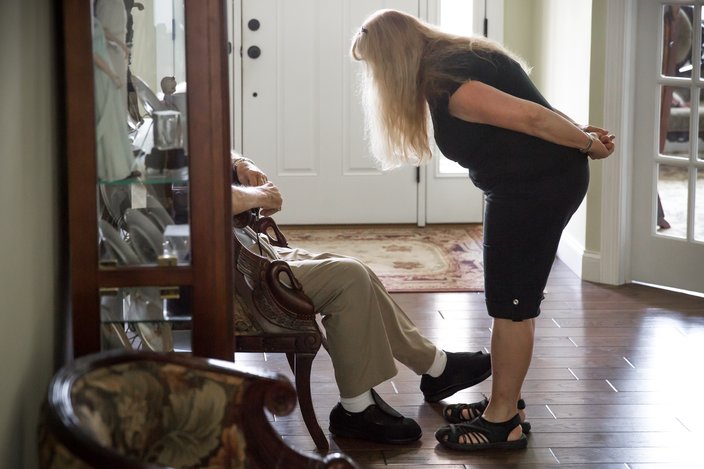 Thom Carroll/PhillyVoice
Thom Carroll/PhillyVoice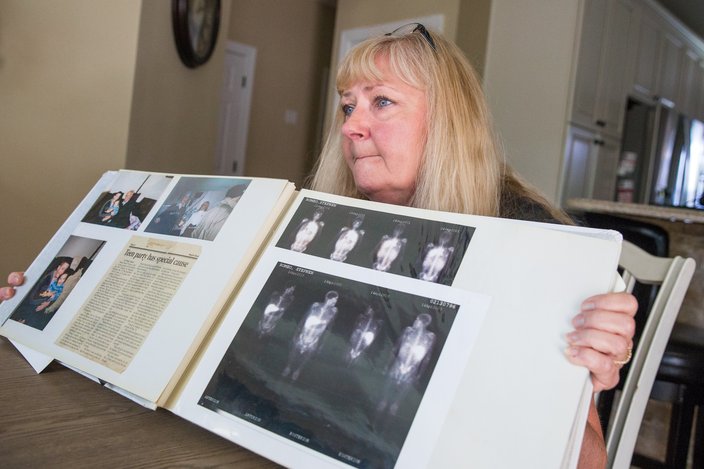 Thom Carroll/PhillyVoice
Thom Carroll/PhillyVoice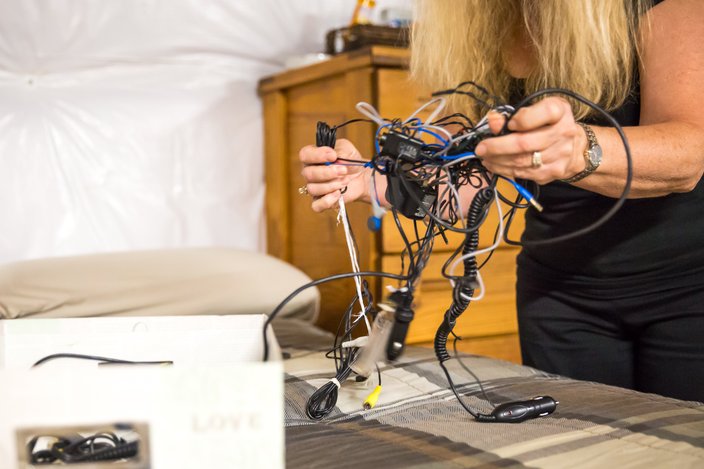 Thom Carroll/PhillyVoice
Thom Carroll/PhillyVoice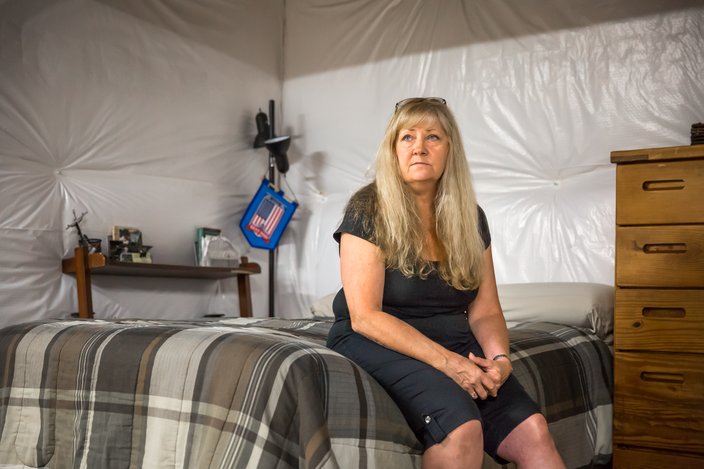 Thom Carroll/PhillyVoice
Thom Carroll/PhillyVoice